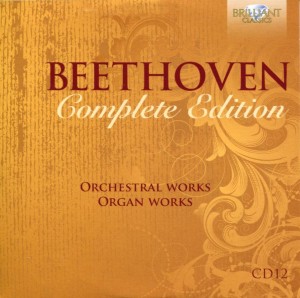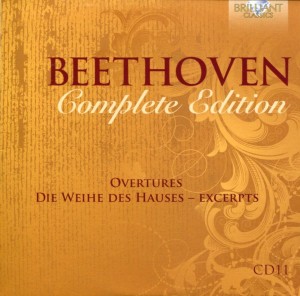 I love Beethoven’s use of dynamics.
I love Beethoven’s use of dynamics.
Most of what I’ve heard so far is bold, brash, and dramatic. Beethoven’s music is almost forceful in its expressiveness.
Today’s CD consists of Orchestral Works and Organ Works, the former performed by the Minnesota Orchestra, conducted by Stanislav Skrowaczewski, and most of the latter performed by the London Symphony Orchestra, conducted by Rafael Fruhbeck de Burgos. In between are organ works performed by Christian Schmitt.
Anyone who says only orchestras in Europe should be taken seriously haven’t heard the Minnesota Symphony. Their performances of these Beethoven works is spectacular, as is the recording itself. Rich and clear.
Here’s what’s on Beethoven CD 12:
Orchestral Works
1. Coriolan – Overture Op. 62 (composed 1807)
2. Namensfeier – Overture Op 115 (composed 1815)
3. Gratulationsmenuett Wo03
4. Triumphal March from Tarpeja Wo02
Organ Works
5. Fugue in D Wo031
5 Stucke Fur Flotenuhr Wo033
5. Allegro non piu molto
6. Allegretto
7. Adagio assai
8. Scherzo: Allegro
11. Grenadiermarsch Hess 107
Wellington’s Victory or The Battle of Vittoria Op. 91 (Composed 1813)
12. British Entrance
13. French Entrance
14. Battle: Allegro
15. March: Allegro assai
16. Victory: Allegro con brio
There’s something about organ works that immediately reminds me of three things: Continue reading

